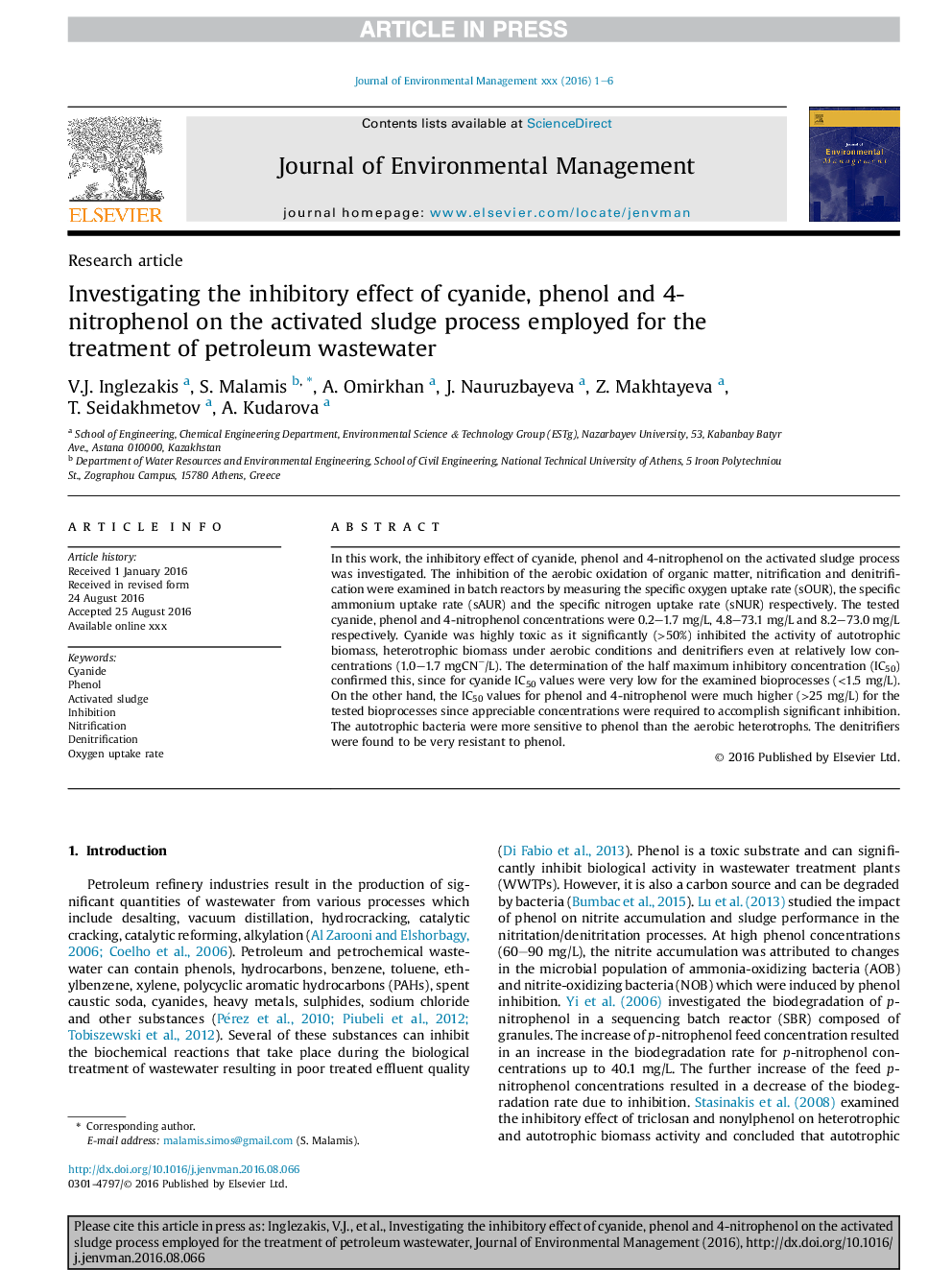| Article ID | Journal | Published Year | Pages | File Type |
|---|---|---|---|---|
| 5116444 | Journal of Environmental Management | 2017 | 6 Pages |
Abstract
In this work, the inhibitory effect of cyanide, phenol and 4-nitrophenol on the activated sludge process was investigated. The inhibition of the aerobic oxidation of organic matter, nitrification and denitrification were examined in batch reactors by measuring the specific oxygen uptake rate (sOUR), the specific ammonium uptake rate (sAUR) and the specific nitrogen uptake rate (sNUR) respectively. The tested cyanide, phenol and 4-nitrophenol concentrations were 0.2-1.7Â mg/L, 4.8-73.1Â mg/L and 8.2-73.0Â mg/L respectively. Cyanide was highly toxic as it significantly (>50%) inhibited the activity of autotrophic biomass, heterotrophic biomass under aerobic conditions and denitrifiers even at relatively low concentrations (1.0-1.7Â mgCNâ/L). The determination of the half maximum inhibitory concentration (IC50) confirmed this, since for cyanide IC50 values were very low for the examined bioprocesses (<1.5Â mg/L). On the other hand, the IC50 values for phenol and 4-nitrophenol were much higher (>25Â mg/L) for the tested bioprocesses since appreciable concentrations were required to accomplish significant inhibition. The autotrophic bacteria were more sensitive to phenol than the aerobic heterotrophs. The denitrifiers were found to be very resistant to phenol.
Related Topics
Physical Sciences and Engineering
Energy
Renewable Energy, Sustainability and the Environment
Authors
V.J. Inglezakis, S. Malamis, A. Omirkhan, J. Nauruzbayeva, Z. Makhtayeva, T. Seidakhmetov, A. Kudarova,
